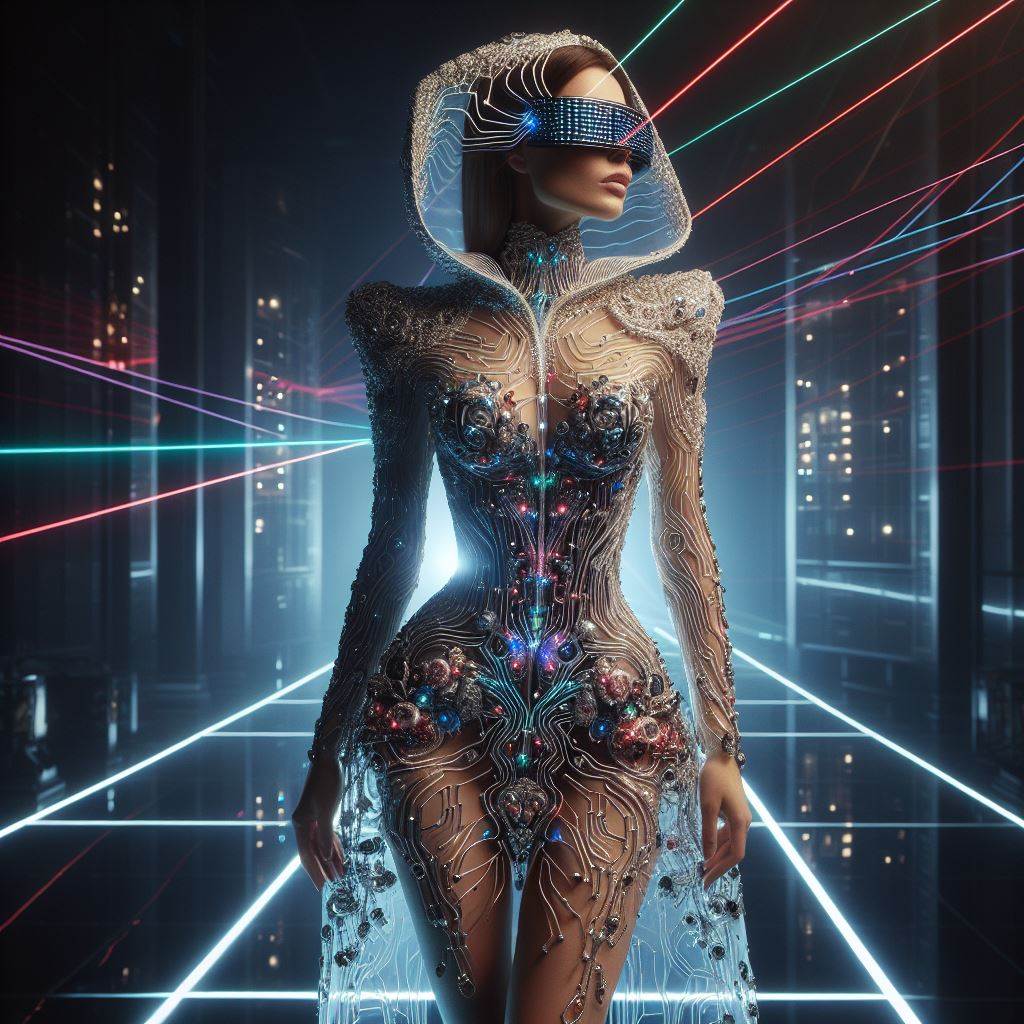
The impact of artificial intelligence (AI) on the creative industries, including the world of fashion, has sparked widespread discussion and debate, with concerns ranging from job losses to the erosion of creativity. However, as London Fashion Week celebrates its 40th anniversary, the event is set to showcase a myriad of AI-generated outfits, signaling a growing optimism within the industry regarding the potential of AI technology.
Matthew Drinkwater, Head of London College of Fashion's Innovation Agency, views AI as a "hugely beneficial tool" for creative processes, offering non-traditional pathways into the fashion industry and fostering inclusivity. Brands like Heliot Emil, Zara, and H&M are already leveraging AI to enhance sustainability in their supply chains and streamline design processes, enabling informed decisions before physical production.
McKinsey's prediction of generative AI's significant contribution to fashion and luxury sectors' operating profits within the next three to five years underscores AI's transformative potential. From predicting fashion trends to creating virtual try-ons, AI is poised to revolutionize various aspects of the fashion industry.
Cyril Foiret, founder of generative AI studio Maison Meta, emphasizes AI's role in amplifying creativity rather than replacing it. The first AI fashion week hosted by Maison Meta in New York provided aspiring designers with the opportunity to showcase AI-generated fashion lines, highlighting AI's collaborative potential in the creative process.
Arti Zeighami, former chief data and analytics officer at H&M, underscores the importance of transparency in AI adoption within fashion, emphasizing the need for human-centered approaches to AI integration. However, Mary Towers, TUC's AI lead, calls for new regulations to protect workers' creativity and intellectual property rights amidst AI's growing influence in the creative sector.
In conclusion, while AI presents transformative opportunities for innovation and efficiency in the fashion industry, a balanced approach is essential to ensure that AI complements human creativity rather than supplants it, fostering collaboration and inclusivity while safeguarding workers' rights and intellectual property.